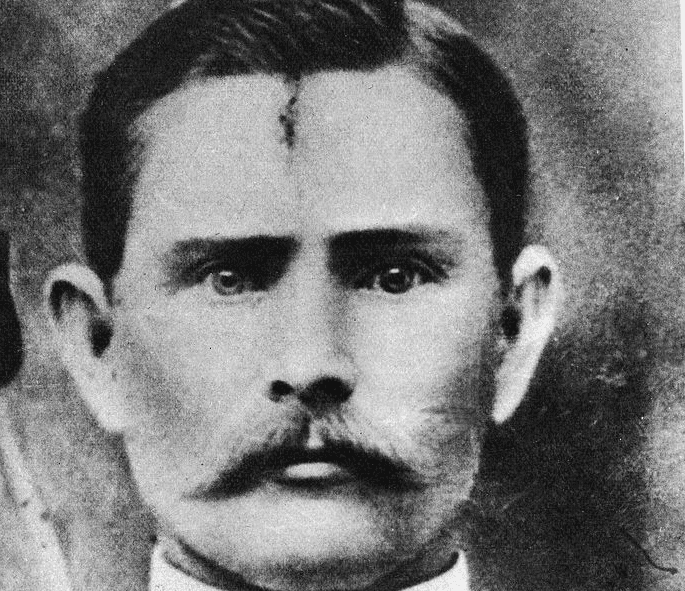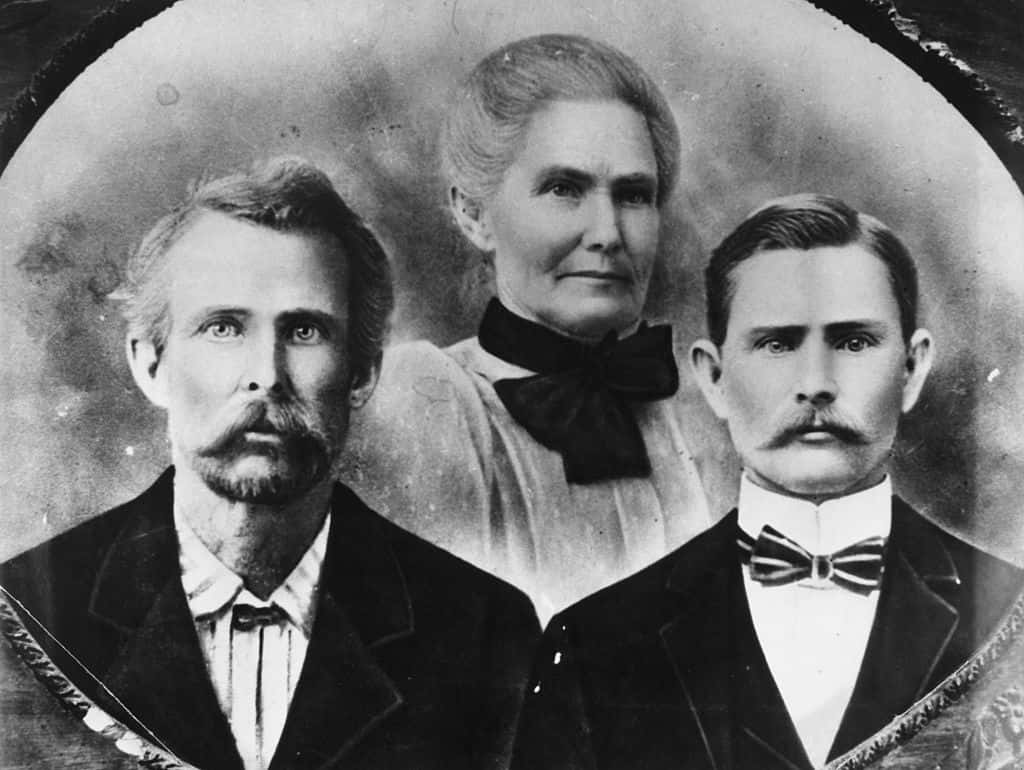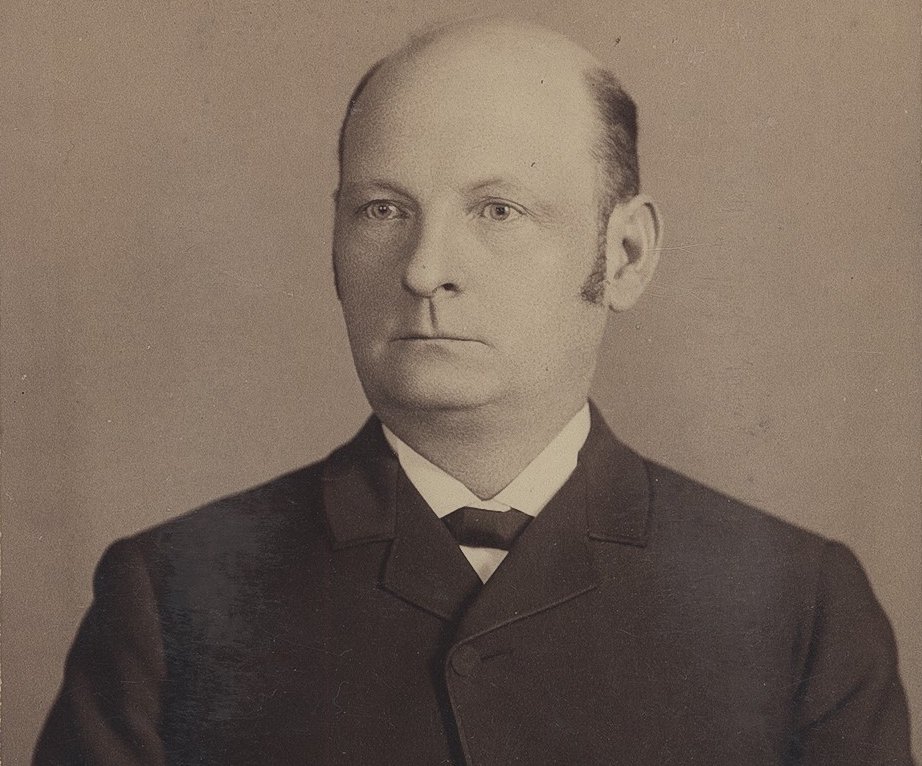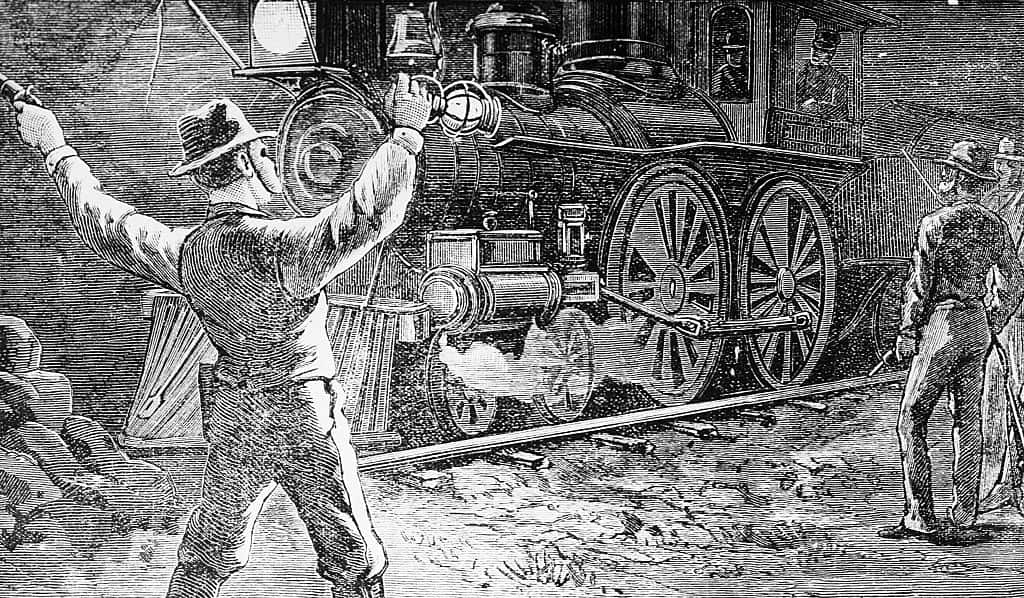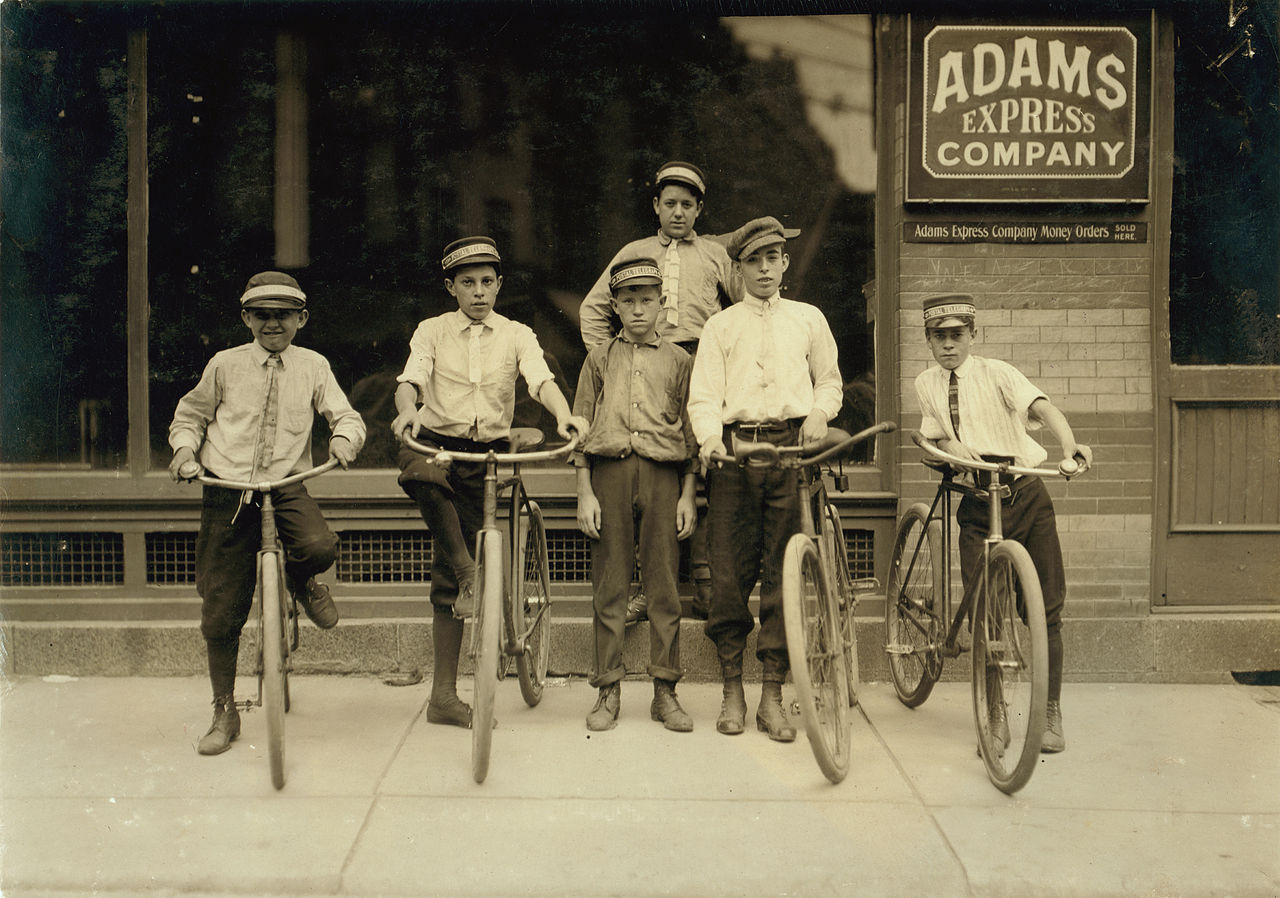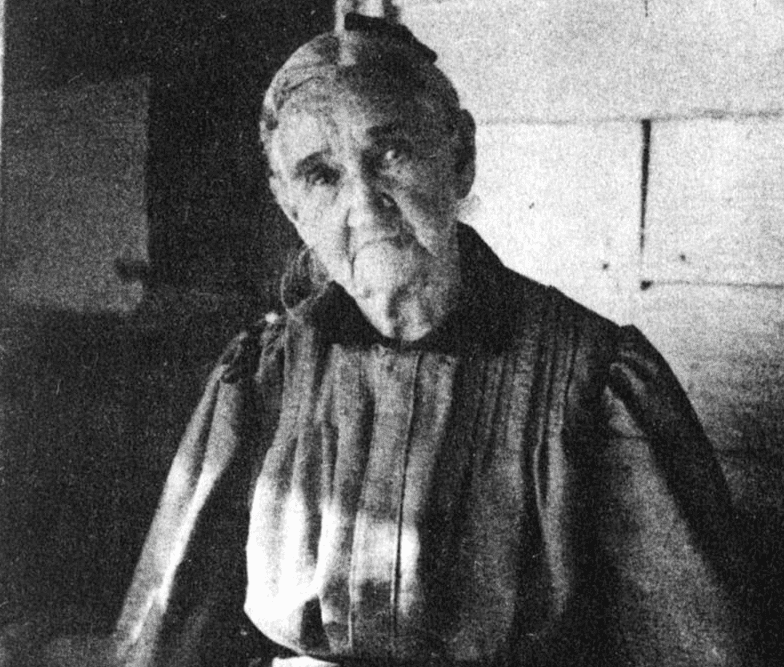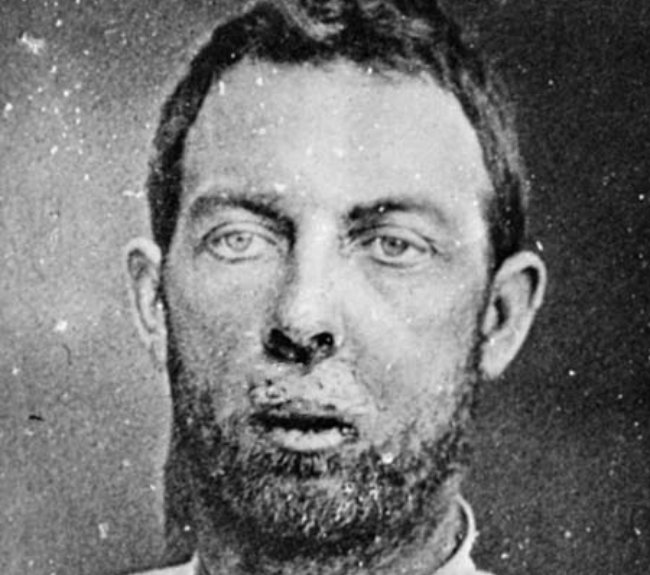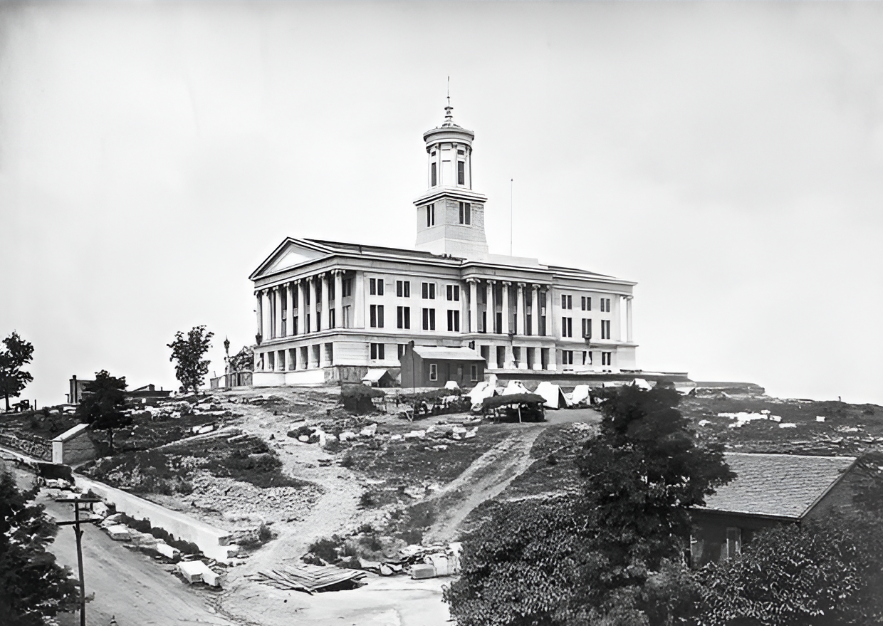The Man Who Terrorized America
Possibly the most famous Old West outlaw was the notorious Jesse James, whose story has persisted over the decades through novels, movies, and TV series. Even during his time, his name became known throughout America as that of a hero bandit who stole from those in power and gave to those without. However, nothing could be further from the truth.
1. His Father Was A Slave Owner
Some outlaws are only pushed to lawlessness later in life, but Jesse James’ family instilled in him values that would lead to a life of thievery. Jesse was born in 1847 in Clay County, Missouri to Robert and Zerelda James, who exemplified the morally bankrupt values of the time. As was common in the mid-19th century, Robert owned several slaves for his farm.
Of course, this continued even after his father’s passing.
 Unknown Artist, Wikimedia Commons
Unknown Artist, Wikimedia Commons
2. His Mother Wasn’t Any Better
As another thing that was common at the time, the James family’s slaves did not gain their freedom following Robert’s passing in 1850. Jesse’s mother, Zerelda James, remarried twice and she and her husband later owned seven slaves to work their tobacco farm. Naturally, when tensions rose in the 1860s, the family knew who they would endorse.
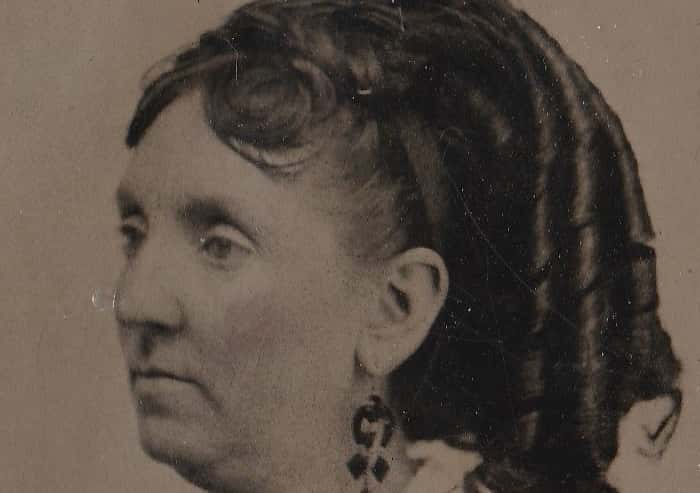 Phillips Collection, WIkimedia Commons
Phillips Collection, WIkimedia Commons
3. They Supported The South
By the time Jesse James was born, his family resided in Clay County, Missouri, but his parents were from Kentucky. Both were border states and were represented by the Union and Confederate governments, but Clay County was largely full of Southern people and culture. As such, the James family advocated for the Confederacy when conflict broke out.
Furthermore, one of Jesse’s siblings left to serve the cause.
4. His Brother Joined The Fight
Although Missouri had a Confederate army presence, many battles were between the Union and the many Confederate guerilla groups, also known as “Bushwhackers”. Near the beginning of the Civil War, Jesse’s older brother Frank joined the Missouri State Guard and later fought with several Bushwhacker squads.
This put a target on his family.
 Guerin, St. Louis, Wikimedia Commons
Guerin, St. Louis, Wikimedia Commons
5. They Were Raided
One group Frank joined belonged to saddler Fernando Scott, and in 1863, the Union took notice. Knowing the two served together, a Union militia set out to find the older James brother, raiding the family’s farm in the process. The consequences were brutal. Although Frank wasn’t there, they viciously interrogated his stepfather and lashed his younger brother, the 16-year-old Jesse James.
Obviously, Jesse grew even more emboldened against the Union.
6. He Joined His Brother
The next year, Jesse James hungered for action and to join his brother in the Southern guerilla cause. So, when Frank returned to Clay County in the ranks of Fletch Taylor’s squad, Jesse didn’t hesitate. He joined the group, and when the loss of Fletcher’s arm took him out of commission, the two brothers moved gangs to one led by "Bloody Bill" Anderson.
However, Jesse soon learned how especially brutal the battles in this period were.
 Warner Bros., The Assassination of Jesse James by the Coward Robert Ford (2007)
Warner Bros., The Assassination of Jesse James by the Coward Robert Ford (2007)
7. He Was Injured
Throughout the 1860s, the Confederate guerillas launched several attacks against Union militias, as well as any civilians who sympathized with the Union. During one of these smaller conflicts in 1864, Jesse was struck down by a severe chest wound. However, this didn’t stop him from continuing his exploits.
 Unknown Artist, Wikimedia Commons
Unknown Artist, Wikimedia Commons
8. They Participated In An Atrocity
There was a reason why Anderson was called Bloody Bill—and it was absolutely horrifying. In September 1864, in what would become the Centralia Massacre, Bloody Bill’s men either slayed or injured around two dozen unarmed Union servicemen after stopping their train home. This led to the Battle of Centralia on the same day, where the Union sustained over 100 casualties.
Frank and Jesse reportedly participated in these acts, and their family suffered the consequences.
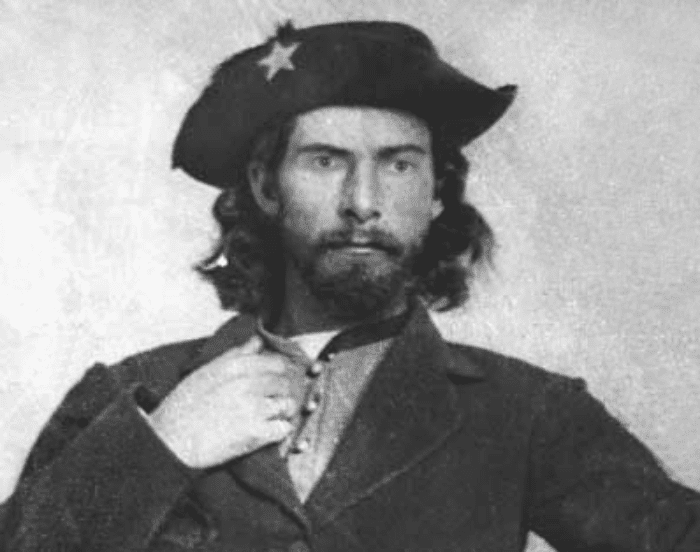 Unknown Artist, Wikimedia Commons
Unknown Artist, Wikimedia Commons

History's most fascinating stories and darkest secrets, delivered to your inbox daily.
9. They Were Driven Out
While Jesse and Frank were not yet the infamous outlaws we know today, the Union still recognized their names and tied them to several guerilla atrocities. Since it was nearly impossible to pin the brothers down, the Union banished the James family from Clay County and told them to move further south. The family left but chose to head north instead.
Soon after, Jesse James would also relocate.
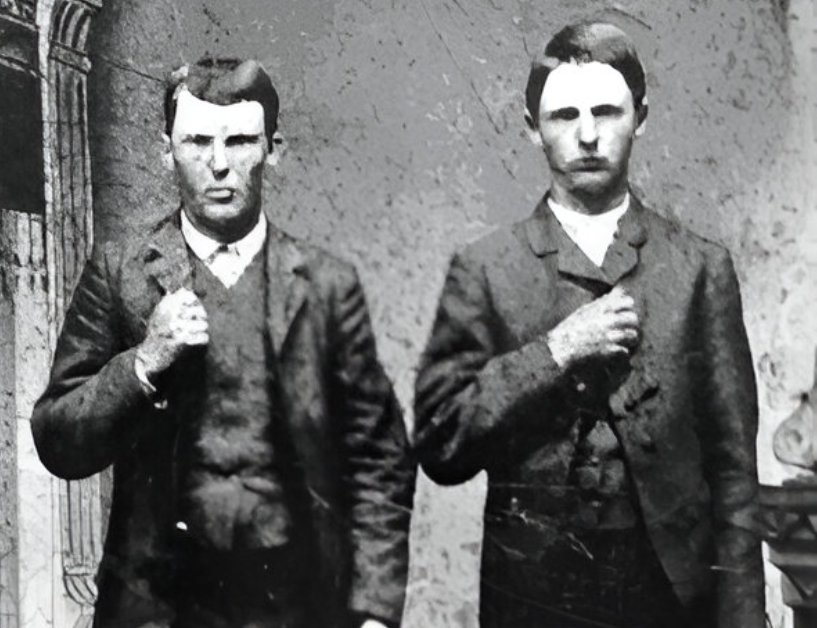 Unknown Artist, Wikimedia Commons
Unknown Artist, Wikimedia Commons
10. He Left The State
In October 1864, Bloody Bill perished, leaving his guerillas leaderless and forcing Frank and Jesse to reevaluate their positions. They both chose to separate from the gang and Frank returned to his previous guerilla group under William C Quantrill. Jesse then joined Bloody Bill’s lieutenant Archie Clement and served under him in Texas.
Even as the conflict ended, Jesse found only pain.
 Dacus, J. A. Wikimedia Commons
Dacus, J. A. Wikimedia Commons
11. He Sustained The Same Wound
A year before the end of America’s internal conflict, Jesse James found himself with a repeat injury. After returning to Missouri, he and his group encountered and fell to a Union cavalry. Jesse surrendered but was nonetheless shot in the chest, leaving him with another severe wound. This wasn’t the end for him, though.
 Warner Bros., The Assassination of Jesse James by the Coward Robert Ford (2007)
Warner Bros., The Assassination of Jesse James by the Coward Robert Ford (2007)
12. He Recovered
Finally, in 1865, the Union proved victorious over the Confederates and the conflict was over. To recover from his chest wound, Jesse had taken refuge with his family, staying at a Missouri boardinghouse run by his uncle. It was here that he would reconnect with someone special to him.
 Mathew Benjamin Brady, Wikimedia Commons
Mathew Benjamin Brady, Wikimedia Commons
13. He Found Someone
All through Jesse’s recuperation period with his Uncle, the outlaw was nursed to health by a woman he fell in love with—but there was a dark twist. Unfortunately, the woman was his first cousin Zerelda Mimms, AKA Zee, who was named after Jesse’s mother. The two courted each other for what would end up being nine years.
Early on, though, Jesse’s lawless streak grew.
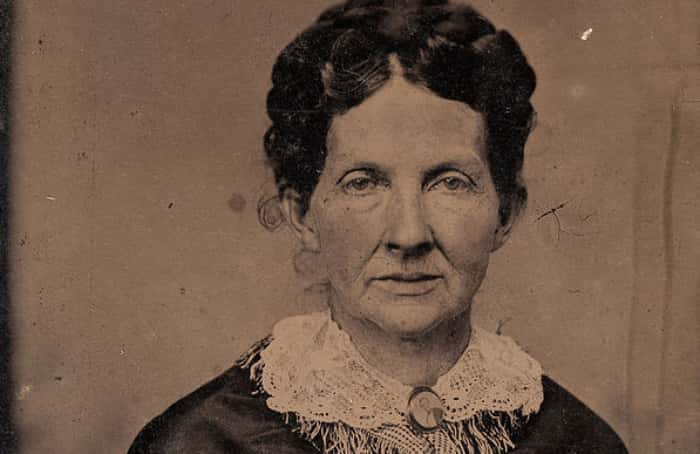 Unknown Artist, Wikimedia Commons
Unknown Artist, Wikimedia Commons
14. They Ran A Heist
In early 1866, several men robbed the Clay County Savings Association, which belonged to a former Union militia officer. The most likely suspects were the ex-guerillas under Archie Clement, as they had been attacking Republic officials since the end of the conflict. However, there may have been some familiar faces among the ranks of these new outlaws.
It seems the James boys hadn’t finished with their old lieutenant.
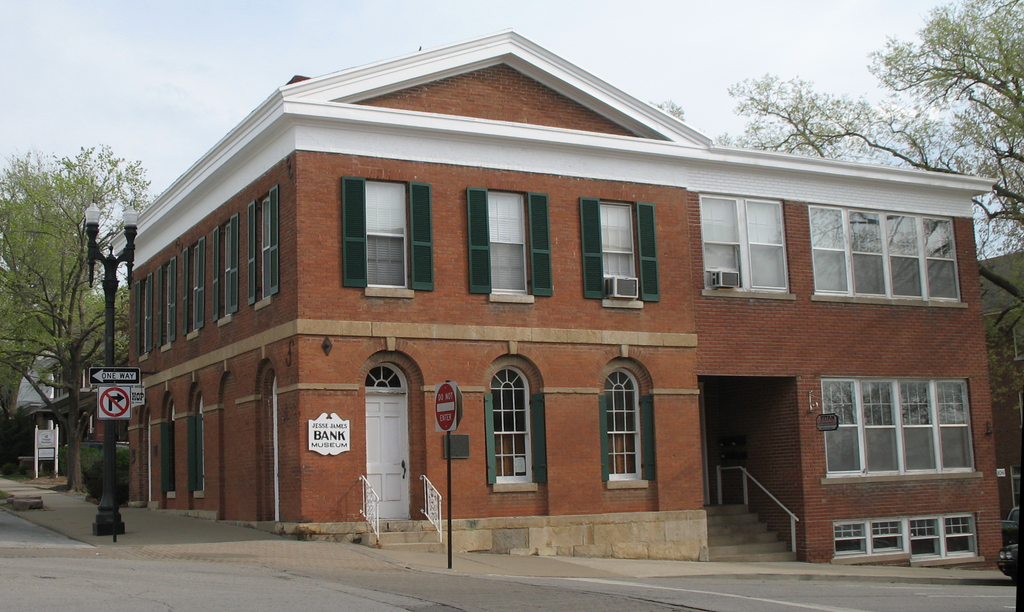 Americasroof, CC BY-SA 2.5, Wikimedia Commons
Americasroof, CC BY-SA 2.5, Wikimedia Commons
15. Their Involvement Was Unclear
True evidence of the James brothers' involvement with Archie Clement’s 1866 hold-up is sparse and largely consists of eyewitness accounts. Although many bystanders came forward to state that the brothers were there, they didn’t do so until later, when Jesse and Frank became famous. As others pointed out, Jesse was just as likely still recovering.
This wasn’t the only sketchy involvement they had.
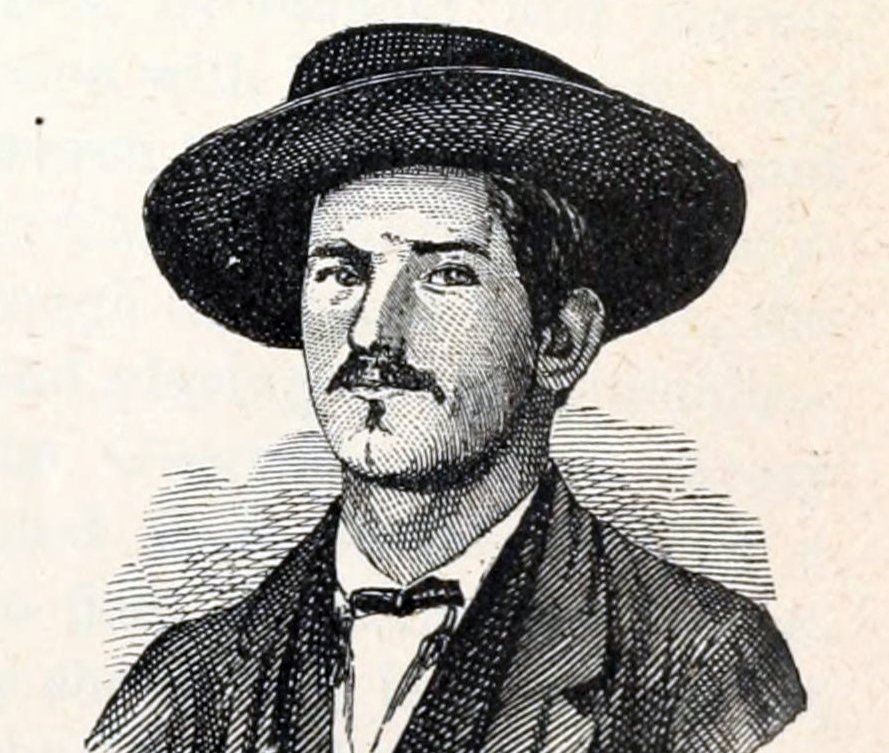 John N. Edwards, Wikimedia Commons
John N. Edwards, Wikimedia Commons
16. They Initiated A Rescue
Later that year, Archie Clement’s Bushwhackers were successful in rescuing two members of William Quantrill’s gang from their incarceration—in an absolutely twisted way. They killed the jailer in the process. Like their heist earlier in the year, it remains unclear whether Jesse and Frank helped the gang, but most experts believe they did.
Through this line of work, things were all falling into place.
 Red River Historical Museum, Wikimedia Commons
Red River Historical Museum, Wikimedia Commons
17. They Joined A Future Gang Member
These unconfirmed reports continued as Clement’s gang committed more thefts over the next few years. One incident that seems more likely was in 1868 when the James brothers reportedly targeted a bank in Russellville, Kentucky. With them in this supposed heist was Cole Younger, their partner-to-be.
At this point, Jesse’s name started growing in infamy, and not just among the authorities.
18. He Became More Famous
Although Jesse had allegedly performed several thefts over the years, most were part of a larger group or stealing from smaller, local targets. Due to this, it wasn’t until late 1869 that he finally became more recognizable, when he held up Gallatin, Missouri’s Daviess County Savings Association.
Of course, much of his newfound fame came from a mess-up on his part.
 Dacus, J. A, Wikimedia Commons
Dacus, J. A, Wikimedia Commons
19. He Made A Mistake
Jesse James was no stranger to bloodshed, but during the hold-up in Gallatin, he committed an act of violence against the wrong man. Captain John Sheets was the bank’s cashier, but Jesse mistook him for the officer who took down Bloody Bill, Samuel P Cox. As a result, Jesse fatally shot Captain Sheets and later called it an act of revenge.
Suddenly, the media started paying attention.
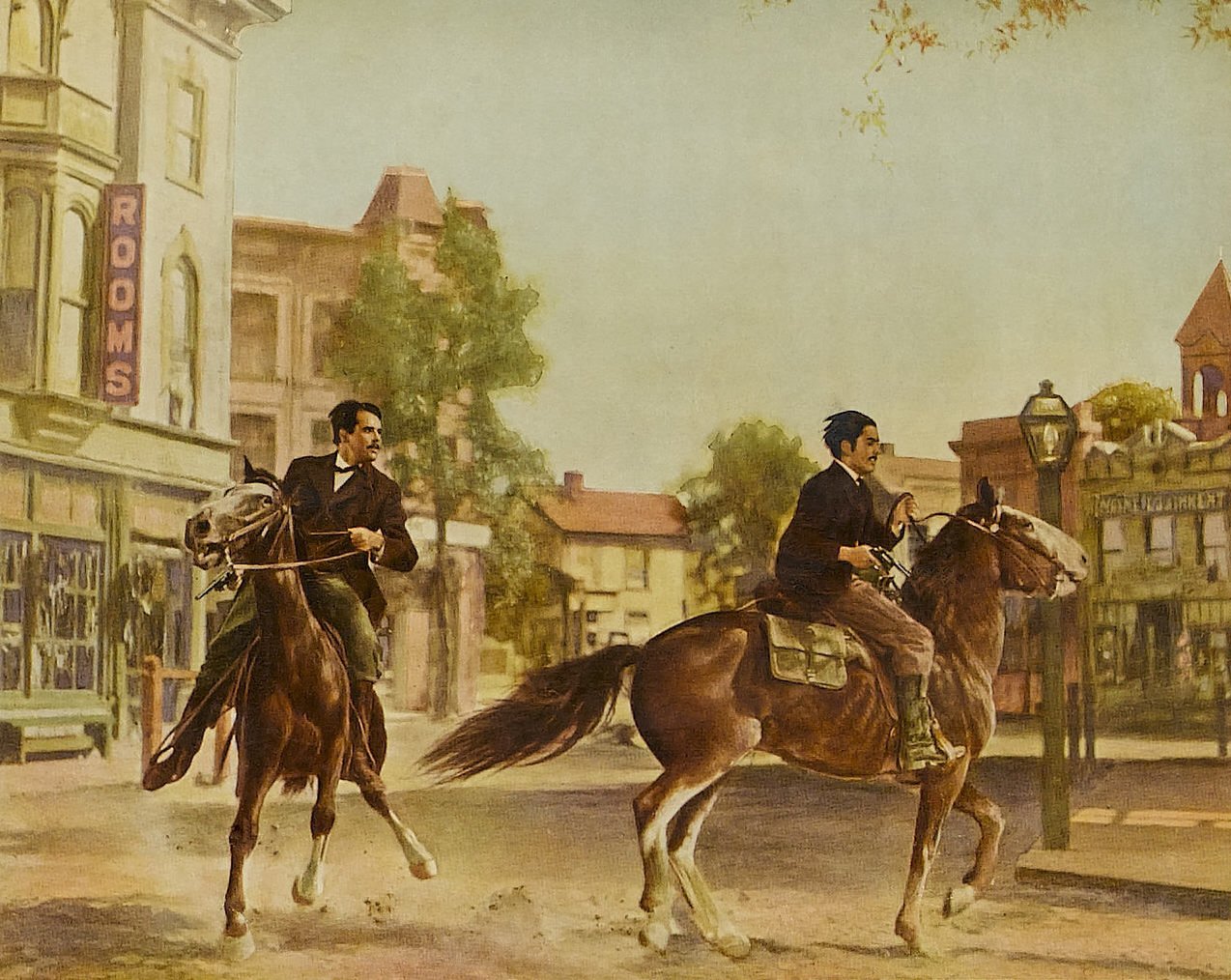 Unknown Artist, Wikimedia Commons
Unknown Artist, Wikimedia Commons
20. They Drew Attention
As Frank and Jesse James made their getaway, a posse of men came to round them up and surrounded the brothers. Nonetheless, the two escaped the clutches of the law and made their names known. Soon after, the first of many mentions of Jesse’s name and deeds appeared in the newspaper.
This also led to the first view of the character Jesse James embodied.
 Dacus, J. A, Wikimedia Commons
Dacus, J. A, Wikimedia Commons
21. He Blew Up
Jesse's stunt in Gallatin had unintended consequences. It launched him into the public consciousness and transformed him into the legendary figure known throughout history. In fact, shortly after this was the first time he was called an outlaw, with the media focusing on him as a remnant of the Confederate guerillas. This was only bolstered by a connection Jesse made.
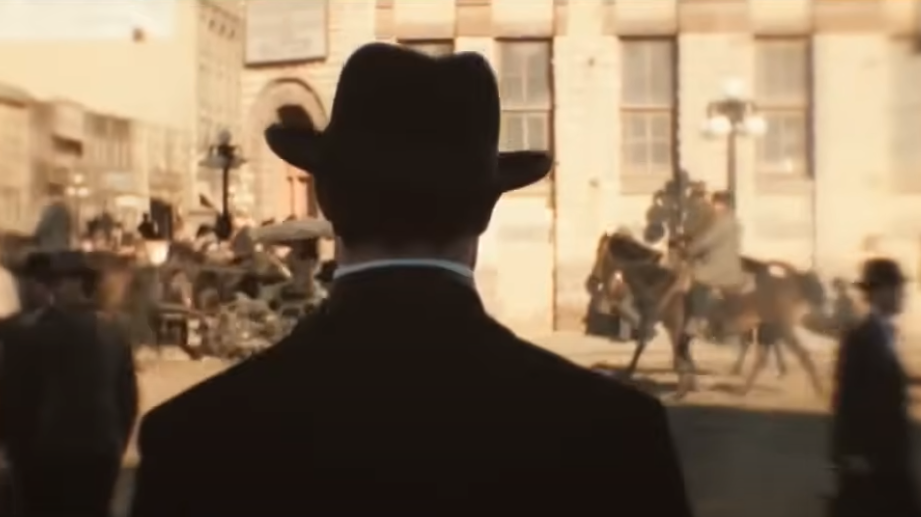 Warner Bros., The Assassination of Jesse James by the Coward Robert Ford (2007)
Warner Bros., The Assassination of Jesse James by the Coward Robert Ford (2007)
22. He Made A Friend
All the media attention allowed Jesse James to get in touch with John Newman Edwards, who was a fan of the outlaw’s work. Edwards was an ex-Confederate who supported former secessionists resuming their political positions and created the Kansas City Times newspaper. He also had no qualms about spreading Jesse’s message.
 Jennie Edwards, Wikimedia Commons
Jennie Edwards, Wikimedia Commons
23. He Passed His Notes Along
Once Jesse got a taste of the public’s attention, he couldn’t get enough. So, with a connection to the news, Jesse seized the opportunity to make his side of the story known. Initially, he sent letters to the Kansas City Times that claimed he and his brother were innocent, and Edwards was all too happy to publish them.
Beyond this, Edwards took some creative liberties.
 Warner Bros., The Assassination of Jesse James by the Coward Robert Ford (2007)
Warner Bros., The Assassination of Jesse James by the Coward Robert Ford (2007)
24. He Published Propaganda
Jesse’s first letters may have intended to set the record straight, but they became something else entirely. Jesse later started preaching his views on the Republicans and his support of the Confederacy, further enabled by Edwards. Through much embellishment, Edwards wrote Jesse as a representation of Southern anger sticking it to the government.
Shortly after, Jesse created the group we know today.
 Warner Bros., The Assassination of Jesse James by the Coward Robert Ford (2007)
Warner Bros., The Assassination of Jesse James by the Coward Robert Ford (2007)
25. They Formed A New Gang
Around the late 1860s, Frank and Jesse formed the most important partnerships of their lives. Already knowing Cole Younger from previous run-ins with the law, the James boys brought in his three brothers, Bob, John, and Jim. With several other ex-Confederates, the two families came together as the James-Younger Gang.
Capitalizing on their fame, they carried on with their illicit behavior.
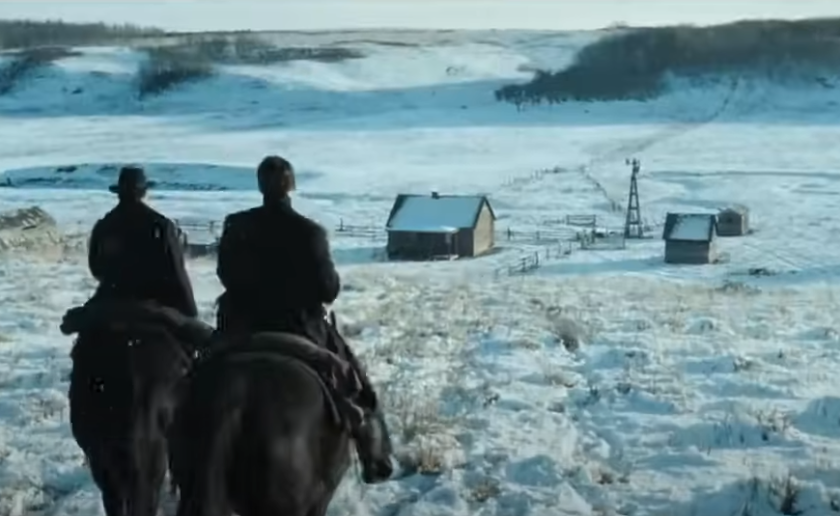 Warner Bros., The Assassination of Jesse James by the Coward Robert Ford (2007)
Warner Bros., The Assassination of Jesse James by the Coward Robert Ford (2007)
26. They Continued Their Spree
During the early 1870s, the James-Younger gang terrorized the American Southwest in their supposed crusade against the Republicans. With each bank or highway theft, the men intentionally operated in front of witnesses if they could, often blurring the line between lawlessness and performance.
Of course, they grew even bolder.
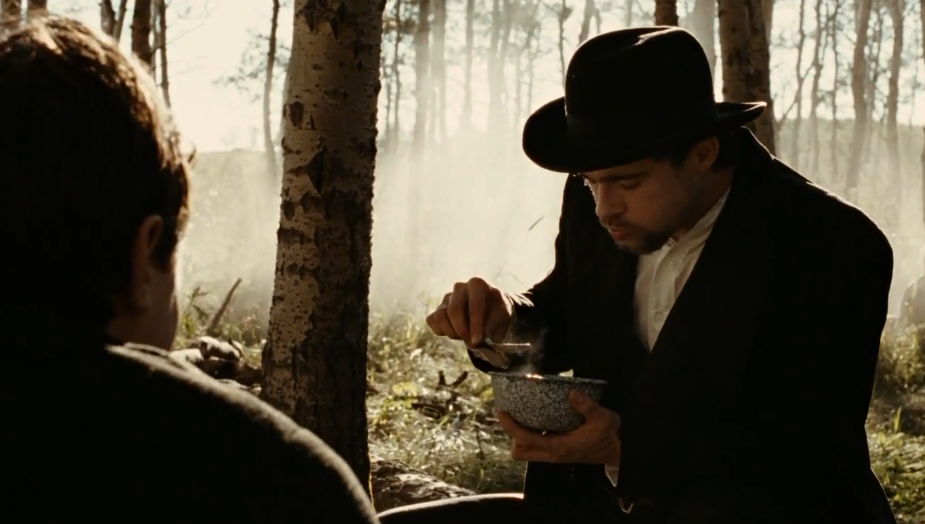 Warner Bros., The Assassination of Jesse James by the Coward Robert Ford (2007)
Warner Bros., The Assassination of Jesse James by the Coward Robert Ford (2007)
27. They Took A Bigger Prize
As a departure from the banks and stagecoaches they had been targeting, the James-Younger gang took a page from Bloody Bill’s book. In 1873, they derailed a train near Adair, Iowa, dressed as Ku Klux Klan members. By the end, they made off with $3,000 from their first train heist.
But they wouldn’t always go this far.
 Warner Bros., The Assassination of Jesse James by the Coward Robert Ford (2007)
Warner Bros., The Assassination of Jesse James by the Coward Robert Ford (2007)
28. They Eased Up
Trains became popular targets for the gang, but they eventually learned to be a bit more subtle and cultivate the public image Jesse James had put forward. Therefore, they avoided stealing from the train passengers as much as possible, focusing on whatever money and goods could be found in the train’s baggage car or safe.
Just as intended, Jesse’s reputation strengthened.
29. He Told More Lies
Through more “noble” actions during thefts, the gang bolstered public sympathy for Jesse. Still, that wouldn’t have been possible without John Newman Edwards’ persistent editorializing. He painted Jesse as an honorable thief, akin to Robin Hood, despite zero evidence—even today—that he gave the money he stole to those who championed him.
Things were going well in Jesse’s personal life as well.
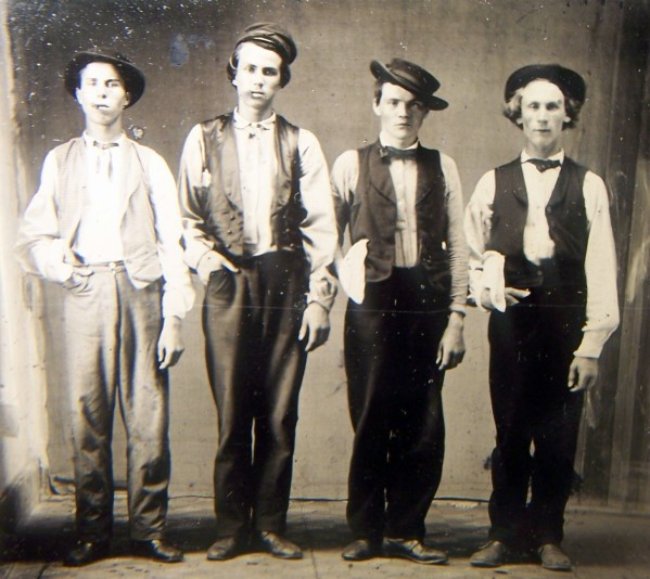 Unknown Artist, Wikimedia Commons
Unknown Artist, Wikimedia Commons
30. They Started A Family
Jesse James and Zee took the next step in their relationship and grew their family as the decade passed. After getting married in 1874, they gave birth to their first child, Jesse Edward James, a year later. Although they had twins in 1878 who sadly passed in infancy, their second and last child would be born the following year as Mary Susan James.
Of course, the law wasn’t satisfied with letting Jesse live the good life.
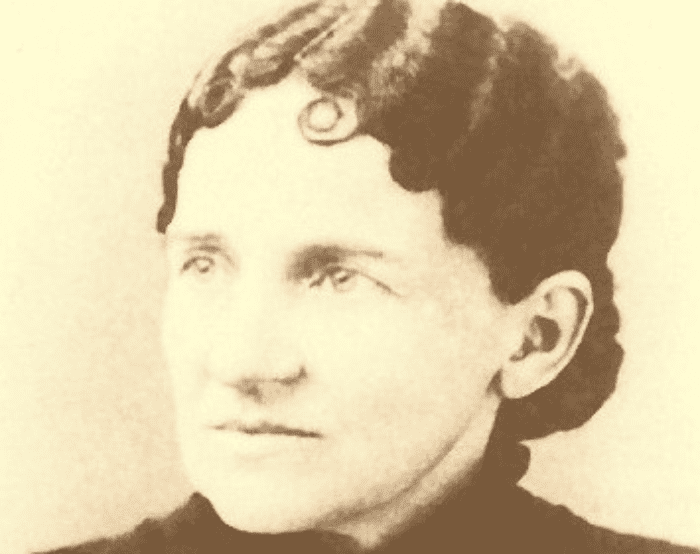 James Farm Museum, Wikimedia Commons
James Farm Museum, Wikimedia Commons
31. They Got Some Help
Local authorities were having trouble keeping up with Jesse and his gang, especially with his growing list of sympathizers, and those he victimized were fed up. Taking action into their own hands, the Adams Express Company enlisted the help of the Pinkerton National Detective Agency in 1874.
Heading the case was a man who wasn’t content to delegate from the sidelines.
32. He Took It Personally
The Pinkertons had been on Jesse’s trail for a few years when the Adams Express Company contacted them but had made little headway. In 1874, three Pinkerton agents sent to investigate the gang perished, although one fatally shot John Younger. Motivated by revenge for the agency’s losses, its leader—Allan Pinkerton—took charge of the case.
His actions were swift and ruthless.
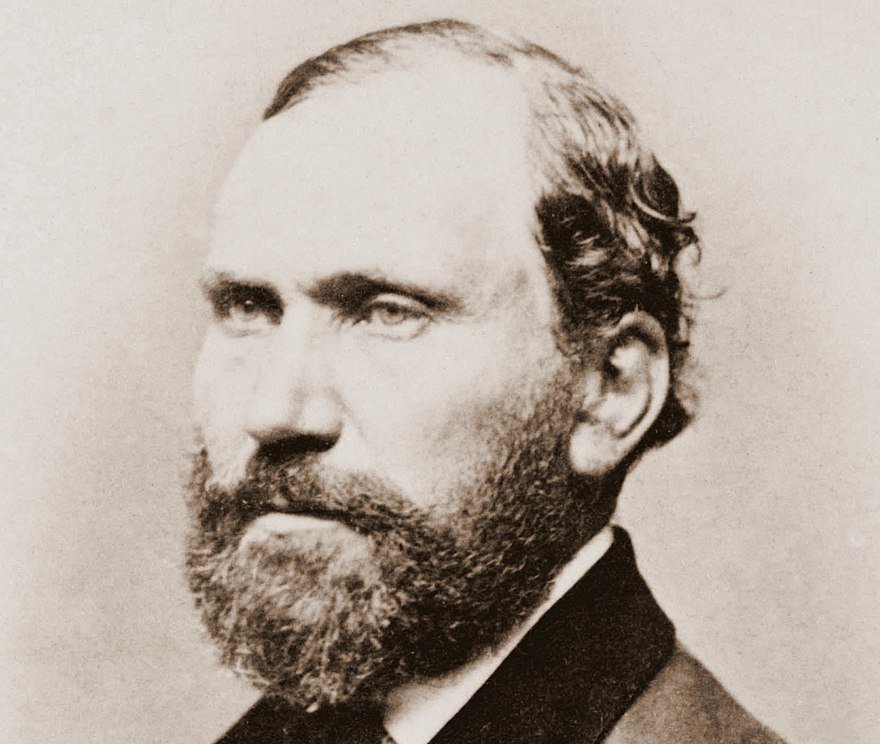 Brady's National photographic Galleries, Wikimedia Commons
Brady's National photographic Galleries, Wikimedia Commons
33. They Raided The Farm
Allan Pinkerton set his sights on the James family farm, determined to send a message. In 1875, he and other Pinkertons raided the farm, throwing an incendiary device inside. The resulting explosion revealed that none of the gang was present. Instead, Jesse and Frank’s mother lost her right arm, and their 9-year-old half-brother perished.
Needless to say, Jesse felt even more justified in his crusade.
34. They Tried Another Heist
Rather than being dissuaded by the attack on his family’s home, Jesse doubled down on his gang’s activity. The following year, they targeted Northfield, Minnesota’s First National Bank as they believed it had connections to Republican governor Adelbert Ames and Union general Benjamin Butler. The day of, they split up and left two men to guard the door.
Unfortunately for the gang, their luck was starting to run out.
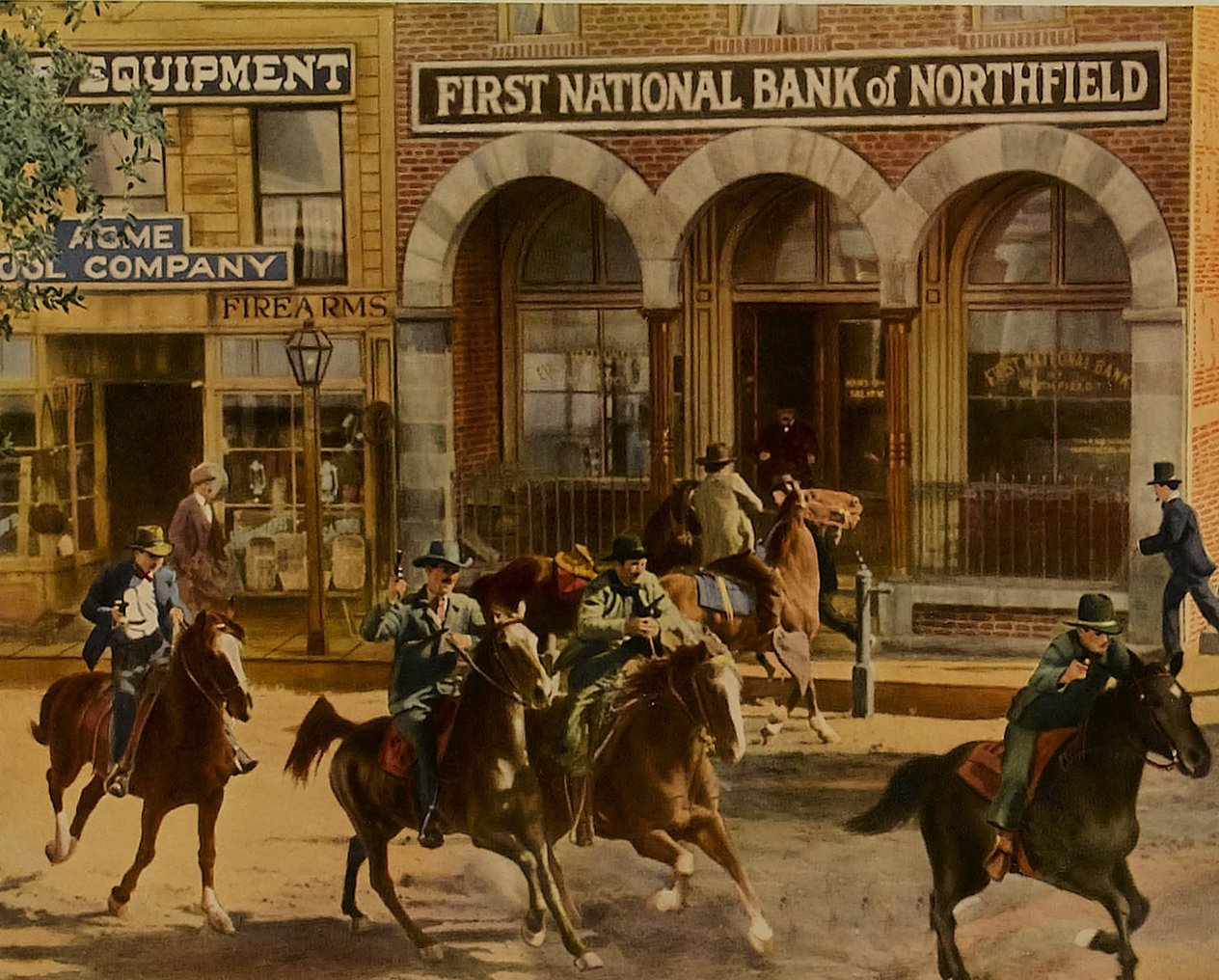 Unknown Artist, Wikimedia Commons
Unknown Artist, Wikimedia Commons
35. They Were Suspicious
Although the James-Younger gang had many sympathizers, not everyone was on their side, especially since the Minnesota heist was far from their usual areas. Seeing the gang members standing guard outside, several bystanders caught on to what was happening and began firing on the outlaws to stop them.
This led to a couple of the gang's first great losses.
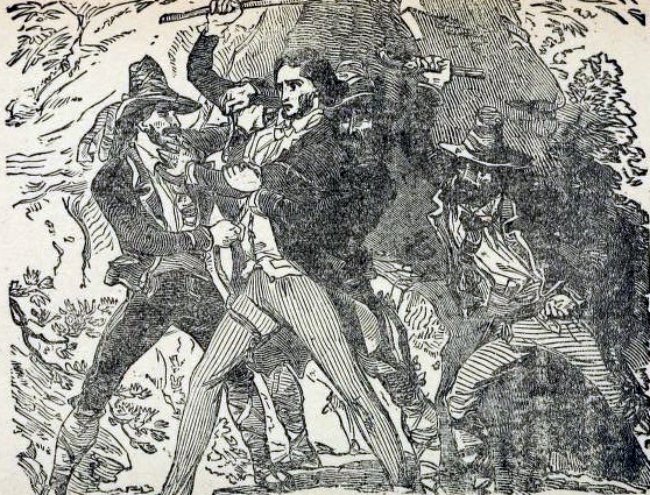 Buel, James W. Wikimedia Commons
Buel, James W. Wikimedia Commons
36. They Lost Some Members
The town drove Jesse’s gang out, but the bandits escaped far from unscathed. The remaining Younger brothers were each injured, including Jim Younger being shot in the jaw. Furthermore, two gang members were fatally shot, one of which was a fellow former guerilla under Bloody Bill named Clell Miller.
With such a monumental failure, the gang scattered.
37. They Split Up
Following the botched operation in Minnesota, and a firefight as they tried to flee, the gang had no choice but to reevaluate. The surviving group largely consisted of Jesse James, Frank, and the Youngers, but they knew they had to lay low for a while. To elude and confuse the ensuing manhunt, the two families split up and went into hiding.
Unknown to them at the time, the gang would never recover.
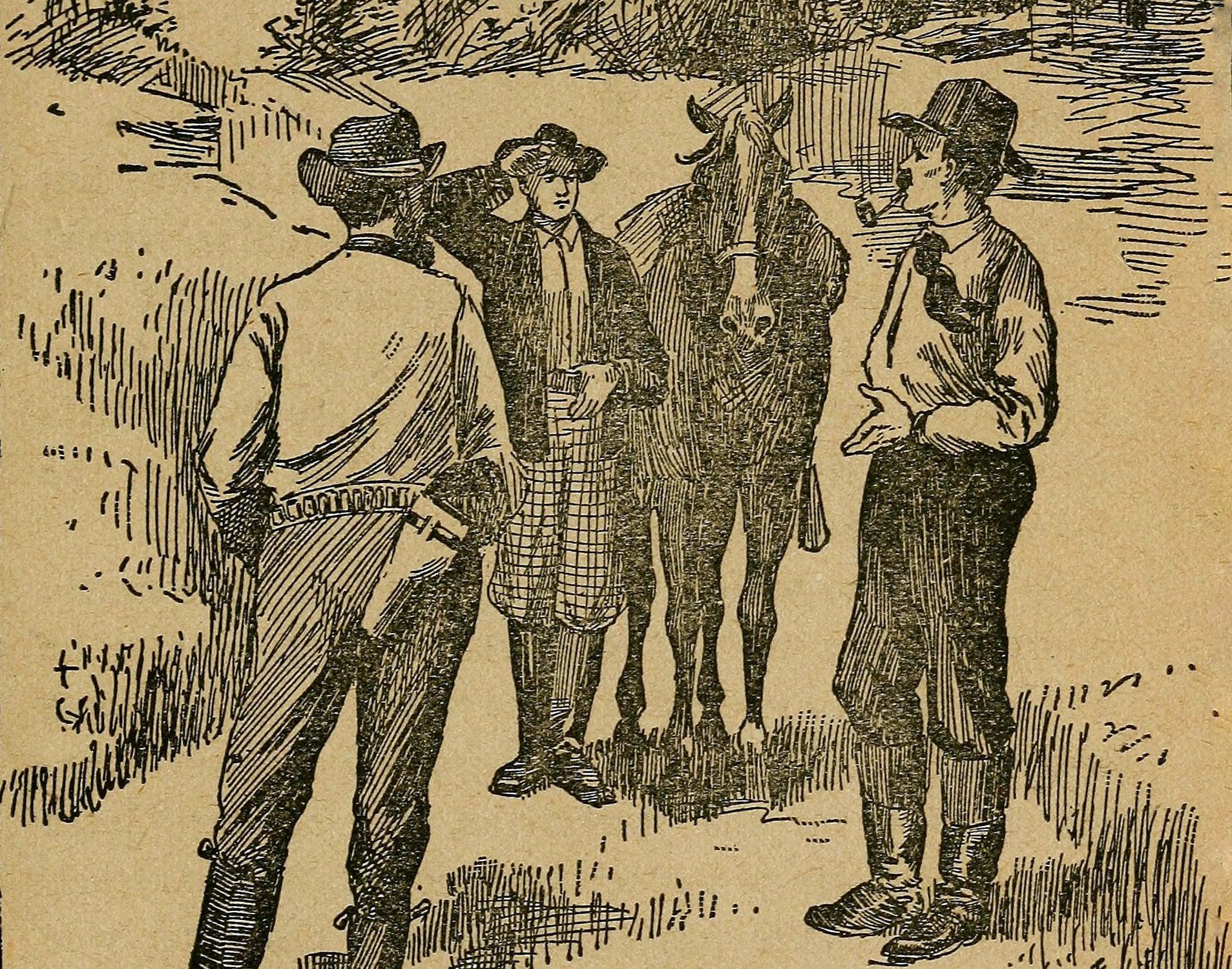 Gordon, Welche, Wikimedia Commons
Gordon, Welche, Wikimedia Commons
38. They Were Diminished
While the James brothers escaped the eyes of the law, the Youngers weren't so lucky. Just two weeks after the failed bank hold-up, militia members caught up to the Youngers, who gave themselves up after losing a shootout. They would later each receive a life sentence, putting the final nail in the coffin of the James-Younger gang.
Meanwhile, Jesse hadn’t quite finished with life outside the law.
 I.E. Sumner, Wikimedia Commons
I.E. Sumner, Wikimedia Commons
39. He Wasn’t Satisfied
After a few years passed, Jesse James reappeared—and he hadn’t learned from the loss of his gang. While Frank seemed content with laying low, his younger, more hot-headed brother insisted on carrying on with their life of lawlessness. Even though his only former partner was less interested, this didn’t deter Jesse.
So, he tried to rebuild his gang.
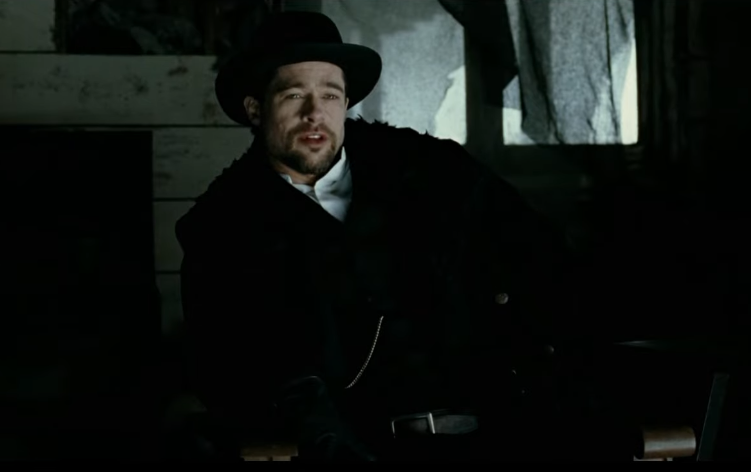 Warner Bros., The Assassination of Jesse James by the Coward Robert Ford (2007)
Warner Bros., The Assassination of Jesse James by the Coward Robert Ford (2007)
40. He Brought Some New Members In
Craving more of the outlaw’s life, and undoubtedly more attention from the public, Jesse decided to form another group. In 1879, he and his new gang returned to banditry, hitting many of the same marks as Jesse’s first gang, including several trains. Still, something wasn’t right.
 Warner Bros., The Assassination of Jesse James by the Coward Robert Ford (2007)
Warner Bros., The Assassination of Jesse James by the Coward Robert Ford (2007)
41. They Weren’t The Same
As his new gang became infamous again, Jesse James realized how different everything had become, especially his recruits. The James-Younger gang were nearly all experienced Bushwhackers, most of whom had previous rapport with each other. This new group couldn't have been more different. It was susceptible to infighting and dwindled over several botched operations.
Needing some stability, Jesse and Frank returned to somewhere familiar.
 Warner Bros., The Assassination of Jesse James by the Coward Robert Ford (2007)
Warner Bros., The Assassination of Jesse James by the Coward Robert Ford (2007)
42. They Went Home
Until 1881, while Jesse’s new gang was in operation, he, his family, and his brother lived in Tennessee. However, the authorities were getting closer to catching the outlaws, so they left again. While Frank moved to Virginia and was still intent on settling down, Jesse took his family and returned to Missouri, residing close to where he grew up.
Without his brother, Jesse had to be more careful who he kept around.
43. His Circle Shrank
As Jesse and his family once again put down roots in Missouri, he wasn’t ignorant of their constant danger. The list of people he could count on gradually shortened until the only ones left were brothers Charley and Robert Ford. Looking out for his loved ones, he insisted the Ford brothers stay at the house with his family.
This blind trust would have devastating results.
 Unknown Artist, Wikimedia Commons
Unknown Artist, Wikimedia Commons
44. He Was Double-Dealing
The same year Jesse returned home, Missouri’s Governor Thomas T Crittenden put a bounty on him. In return for the successful capture of the infamous outlaw, dead or alive, a reward of $10,000 was promised. This offer was all too enticing for Robert Ford, who made a deal with the governor to capture Jesse alive.
Then, the time for his betrayal arrived.
 Pinkerton's Detective Agency, Wikimedia Commons
Pinkerton's Detective Agency, Wikimedia Commons
45. They Planned For The Day
On Jesse’s last day alive, he and the Ford brothers began surprisingly normally, eating breakfast before preparing for the rest of the day. They had planned to perform another heist in Platte City, but some believe Jesse knew he would never get the chance to. Before they left, Robert Ford waited for the perfect moment.
 Warner Bros., The Assassination of Jesse James by the Coward Robert Ford (2007)
Warner Bros., The Assassination of Jesse James by the Coward Robert Ford (2007)
46. He Turned His Back
In these later years, Jesse James had become more suspicious and wary that the Ford brothers were hiding something. While unclear, it’s possible he knew what was about to happen and accepted his fate, as something bizarre happened. Jesse inexplicably placed his revolvers down and turned his back to fix a picture on the wall.
Finally, Robert struck.
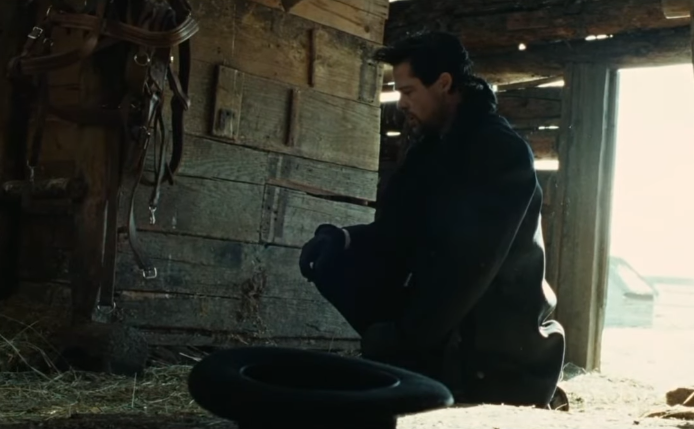 Warner Bros., The Assassination of Jesse James by the Coward Robert Ford (2007)
Warner Bros., The Assassination of Jesse James by the Coward Robert Ford (2007)
47. He Seized His Chance
Rather than try to bring Jesse in alive as agreed, Robert Ford took his chance to take out Jesse for good. With the outlaw’s back turned Robert drew his revolver and fired it at the back of Jesse’s head. Thus on April 3, 1882, Jesse James perished in his home. Naturally, the public went crazy when the news broke.
 Warner Bros., The Assassination of Jesse James by the Coward Robert Ford (2007)
Warner Bros., The Assassination of Jesse James by the Coward Robert Ford (2007)
48. He Caused A Frenzy
No matter how people felt about Jesse James, a commotion erupted among the public after his demise. Even as his body lay in the house, hordes of people came to look at him. His sympathizers were the loudest, as they were outraged at the betrayal by Robert Ford, and called him a coward for slaying Jesse with his back turned.
The deed was done, but the Ford brothers were in for a surprise.
 Warner Bros., The Assassination of Jesse James by the Coward Robert Ford (2007)
Warner Bros., The Assassination of Jesse James by the Coward Robert Ford (2007)
49. They Were Taken In
Along with the cash reward for his betrayal, Governor Crittenden promised Robert and his brother immunity for all their illicit activity, including Jesse’s demise. However, in the aftermath, they subjected them to a stunning betrayal. Authorities took both brothers into custody, who were found guilty and sentenced to execution.
However, this seemed a mere formality, as the governor pardoned them the same day. Meanwhile, the only other gang member Jesse James could have trusted got off easy.
 Mathew Benjamin Brady, Wikimedia Commons
Mathew Benjamin Brady, Wikimedia Commons
50. He Settled Down
As the one who was no longer in it for the thrill of living outside the law, Frank James took his brother’s demise as a sign to turn himself in. Five months later, he met with Governor Crittenden and surrendered himself to authorities, stating he became tired of running. The courts tried him on two charges and shockingly acquitted him on both, freeing him from custody a year later. He then spent the rest of his life as a free man.
 Warner Bros., The Assassination of Jesse James by the Coward Robert Ford (2007)
Warner Bros., The Assassination of Jesse James by the Coward Robert Ford (2007)
You May Also Like:
Rough Facts About Calamity Jane, The Wildest Woman In The Old West
Dastardly Facts About Doc Holliday, The Wild West Gentleman
Rowdy Facts About Big Nose Kate, The Wildest Woman In The West


